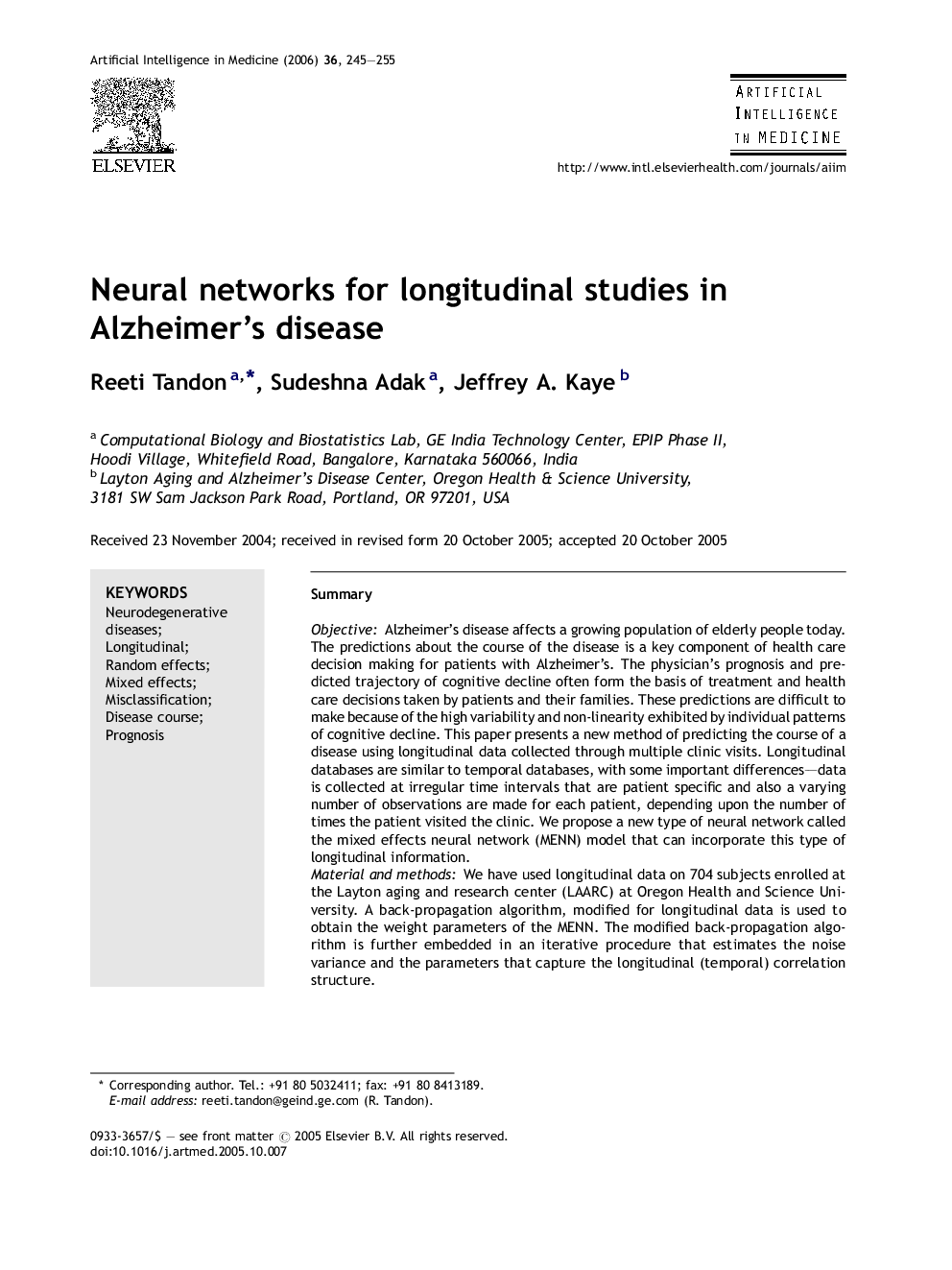| کد مقاله | کد نشریه | سال انتشار | مقاله انگلیسی | نسخه تمام متن |
|---|---|---|---|---|
| 378153 | 658889 | 2006 | 11 صفحه PDF | دانلود رایگان |

SummaryObjectiveAlzheimer’s disease affects a growing population of elderly people today. The predictions about the course of the disease is a key component of health care decision making for patients with Alzheimer’s. The physician’s prognosis and predicted trajectory of cognitive decline often form the basis of treatment and health care decisions taken by patients and their families. These predictions are difficult to make because of the high variability and non-linearity exhibited by individual patterns of cognitive decline. This paper presents a new method of predicting the course of a disease using longitudinal data collected through multiple clinic visits. Longitudinal databases are similar to temporal databases, with some important differences—data is collected at irregular time intervals that are patient specific and also a varying number of observations are made for each patient, depending upon the number of times the patient visited the clinic. We propose a new type of neural network called the mixed effects neural network (MENN) model that can incorporate this type of longitudinal information.Material and methodsWe have used longitudinal data on 704 subjects enrolled at the Layton aging and research center (LAARC) at Oregon Health and Science University. A back-propagation algorithm, modified for longitudinal data is used to obtain the weight parameters of the MENN. The modified back-propagation algorithm is further embedded in an iterative procedure that estimates the noise variance and the parameters that capture the longitudinal (temporal) correlation structure.ResultsWe have compared the performance of the MENN with linear mixed effects models and standard neural networks (NN). MENN show better performance (misclassification rate = 0.13 and relative MSE = 0.35) as compared to standard NN (misclassification rate = 0.34 and relative MSE = 2.74) and linear mixed effects models (misclassification rate = 0.14 and relative MSE = 0.4).ConclusionThe results show that this method can be a useful tool for predicting non-linear disease trajectories and uncovering significant prognostic factors in longitudinal databases.
Journal: Artificial Intelligence in Medicine - Volume 36, Issue 3, March 2006, Pages 245–255